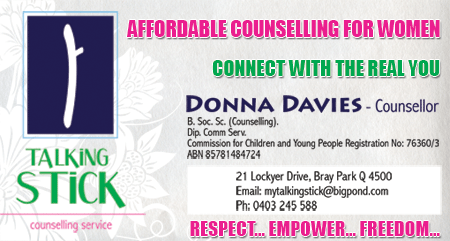I remember a day or two after having my first baby (almost 28 years ago!), lying in my hospital bed and gazing at him in wonder…..and sobbing. My very caring doctor looked at me with concerned eyes and asked “Are you happy with your baby?” I looked back at him and in amongst my sobs and tears said “Yeeeeesss”. I was experiencing a typical case of the “baby blues”.
Many women will develop the “baby blues” after having bub. And this feeling usually passes in a day or two (as did mine).
Post Natal Depression (PND) is different to the “baby blues”. PND develops within twelve months of having your baby. Usually within the first few months, and it can range in severity from mild and not lasting long to extreme and hanging around.
Some symptoms to be aware of, these vary depending on how severe the PND is:
Feeling inadequate.
Thinking negative thoughts.
Feeling life has no meaning.
Feeling you cannot cope.
Being tearful and cranky.
Trouble sleeping.
Losing interest in sex.
Being anxious, experiencing panic attacks or heart palpations.
No appetite.
Trouble concentrating or not remembering things.
Some other factors that can also be partly responsible are:
Your body has just been through the amazing and physical experience of giving birth (no matter how easy or difficult) and your hormones are all over the place. Sleep patterns and feeling exhausted also add to feeling depressed.
Your emotions are taking a battering – getting used to looking after a very dependant bub. A changed connection with your partner, and getting to know who you are now as a Mum! Such a lot of change to come to terms with.
Also trying to live up to what you believe is expected of you as a new Mum and feeling isolated as your social circle is now difficult to connect with. And the loss of income surely will add to the list of what a new mum is trying to manage.
As part of PND a Mum may find herself withdrawing from others. This may include her baby. You can be assured this doesn’t mean you’re a “bad” mother. As you return to strong healthy emotions, you’ll be able to resume a bonding and loving relationship with your baby. While you’re in the healing process, family and friends may need to give extra support and help.
HELP
Most importantly is the help and understanding of family and friends.
Being able to talk about your feelings is helpful, to a counsellor or a support group.
For more severe cases, medication might be used. However, remember those with PND will recover as times goes by.
If you are experiencing any of these symptoms seek out help. Your doctor is a great place to start. The hospital or Community Health Centre may be able to help you find a support/mother’s group. Or find a counsellor to talk to; he/she will be able to support you through this time.
Post Natal Depression can be a dark tunnel, however, remember there is a light at the end of that tunnel, as you seek help and move forward with your life and your beautiful baby.
Donna Davies


